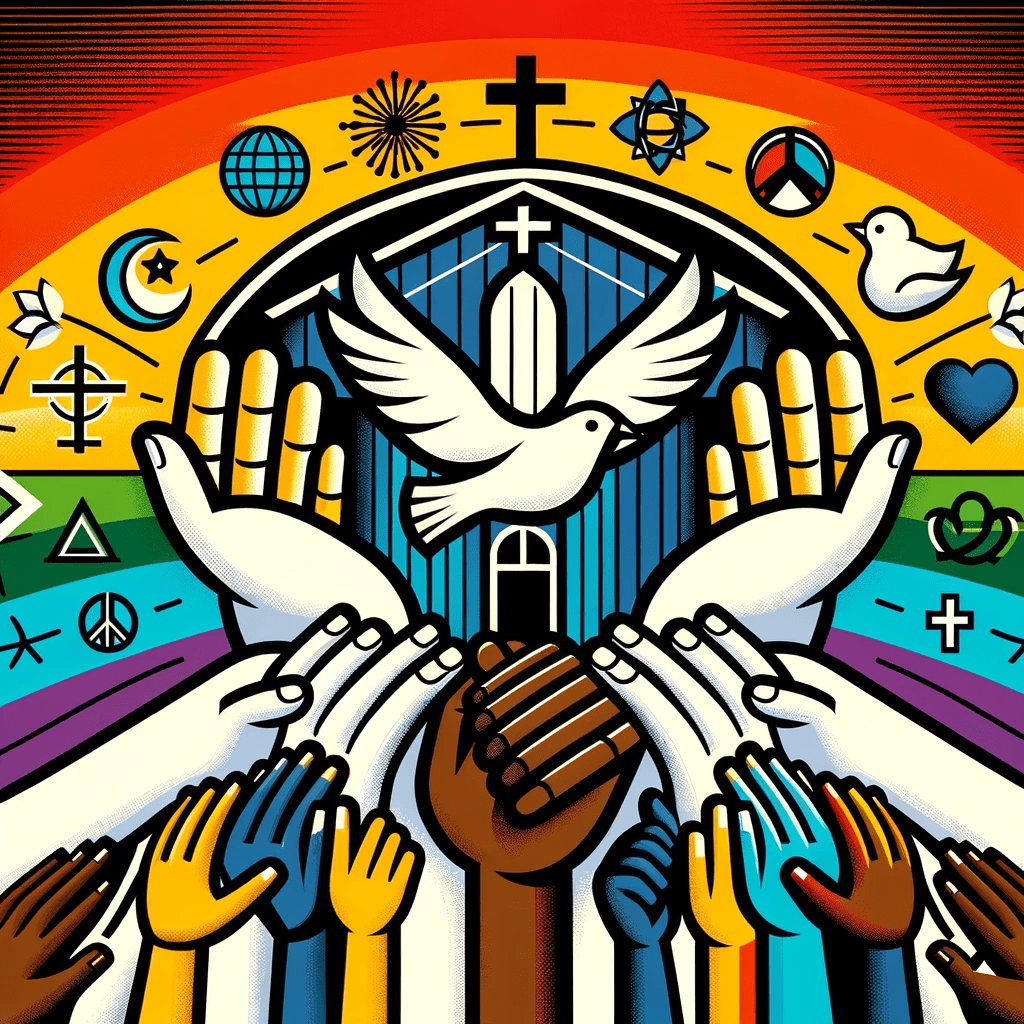
A Path of Dialogue and Inclusion: The Mission of the Vincentians in the Modern World
On the occasion of World Day of Dialogue between Religions and Homosexuality, we reflect on the crucial role of Vincentian missionaries. This day, which promotes dialogue and understanding between different faiths and sexual orientations, invites us to consider how missionaries can be instruments of peace, welcome and inclusion in every corner of the world.
Welcoming and Listening
Vincentian missionaries are called to serve in diverse and complex contexts. This service requires a deep spirit of welcoming and listening. Every person encountered, regardless of their faith, culture or sexual orientation, deserves to be listened to and understood. As shown by the conference in Genoa and the reflections of the Synod, it is fundamental to recognise and respect the dignity of every individual.
Interfaith Dialogue and Inclusion
Dialogue between different faiths and understanding LGBTQ+ issues are crucial aspects of missionaries’ ministry. Pope Francis, with his inclusive approach, teaches us that defending the truth does not exclude kindness and understanding. Missionaries are invited to follow this example, promoting dialogue that overcomes barriers and builds bridges of understanding.
Reflection and Personal Growth
Vincentian missionaries are called to continuous reflection and personal growth. Facing religious, cultural and sexual diversity is an opportunity to enrich one’s faith and better understand humanity in its rich diversity. This journey of personal growth is essential to be true witnesses of God’s love.
A Path of Mercy and Understanding
Inspired by the words of Pope Francis and the reflections of the Synod, missionaries are called to a path of mercy and understanding. This means welcoming everyone, especially those who feel marginalised or excluded, and helping them to find their place in the community of faith.
The Synod and Pope Francis’ Approach to the LGBTQ+ Community
The recent reflections of the synodal assembly, inspired by Pope Francis’ indications, addressed complex issues such as the acceptance of LGBTQ+ people in the Church. This debate, which is part of the broader context of the post-synodal Apostolic Exhortation “Amoris laetitia“, aims to find new paths of welcome and integration. Pope Francis introduced elements of discontinuity with the past, emphasising the importance of pastoral charity and respect for people, regardless of their affectivity and sexuality. He made it clear that, while not confusing sacramental marriage with other forms of union, it is crucial to maintain an attitude of kindness, patience, understanding and encouragement. This approach is reflected in his response to the ‘Dubia’ posed by some cardinals regarding the blessing of gay couples, where he emphasised the need to discern on a case-by-case basis, avoiding unbearable casuistry. Pope Francis emphasised that pastoral charity requires not treating people as mere ‘sinners’, but to consider the various factors that influence subjective imputability. These reflections are in line with his teaching of a pastoral mercy that invites all, without exclusion, to participate in the life of the Church, opening up new spaces of welcome and integration for the LGBTQ+ community within the Church community.
The Declaration ‘Fiducia supplicans’ and the Church’s Path to Inclusion
The doctrinal declaration ‘Fiducia supplicans‘, approved by Pope Francis, has opened a new chapter in the Church’s dialogue with irregular couples, including members of the LGBTQ+ community. This document, which has sparked debate and questioning around the world, clarifies that the doctrine on marriage remains unchanged, but introduces the possibility of pastoral (not liturgical or ritualized) blessings for irregular couples. These blessings, while not approving or justifying the couples’ situation, are a gesture of pastoral closeness and openness to God in the different circumstances of life.
The document emphasises that such blessings must not be confused with liturgical rites or be interpreted as moral legitimisation of unions outside sacramental marriage. Moreover, the Declaration calls for a distinction between “liturgical or ritualised” and “spontaneous or pastoral” blessings, valuing the simple faith of the People of God and its openness to transcendence. This approach reflects the pastoral vision of Pope Francis, who calls for greater discernment and special attention to local pastoral and cultural needs, without denying Catholic doctrine but promoting a closer and more fruitful ministry, full of gestures of paternity and closeness.
Conclusion
World Day of Dialogue between Religions and Homosexuality is a powerful reminder of our duty to welcome and love every person. For Vincentian missionaries, this day is an opportunity to renew their commitment to a ministry that is truly inclusive and respectful of every person they encounter. Through listening, dialogue and welcoming, missionaries can help build a more just and compassionate world, bearing witness to God’s universal love.
Girolamo Grammatico
Office of Communication


I am truly happy that the dialogue between the lgbt community and the pontiff has begun. We are all exemplars of God’s strength and infinite love for all mankind. It is wonderful that on those same terms we may now communicate with open hearts and minds. These are the momentous times I have been waiting for throughout my life. As, even as a child I knew of my own sexual orientation, though I could confide in no one except God. God knew my secret and kept me well into young adulthood when I could join local ministries who would petition unfailingly to the church’s hierarchy to acknowledge our force, our strength, our resolve, our faith. We believe that the canon of saints does include members of the lgbt community, though this not be recognized officially: we may now bravely come forth faithfully into public recognition in the light of our faith.
In my reading of Catholic Doctrine, the defining of “more fruitful ministry” and “inclusive and respectful” would mean that in harmony with Catholic Doctrine we are accompanying people who are in some sense challenged by that Catholic Doctrine in the sphere of the expression of their sexuality to find in Christ the way to freedom from bondage to an expression of that sexuality that contradicts the Catholic Doctrine. We would do this by speaking the truth in love.